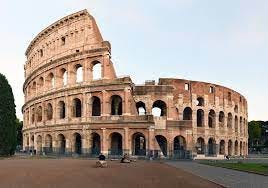If you are looking for the beginning of the study for Plutarch’s Life of Romulus then you can go HERE for a brief introduction and a free PDF of the text. At the bottom of the introduction you will find the links to each section of the study guide as it becomes available. If you would like to see the growing list of book studies available for free on this site you can go HERE. Enjoy!
Virtues/Vices/Great Ideas: (Find them in the Text)
Fate vs. Fortune, Providence, Community, Justice
Grammar Questions: (The Information of the Text)
What did Plutarch confidently claim concerning “the present power of Rome”?
What was the official Roman policy towards runaway slaves, people in debt, and those who were wanted for murder?
How did Romulus and Remus agree to settle their disagreement about where to build Rome?
What are some reasons Plutarch gives for why vultures are the best birds for taking auguries?
How did Remus die?
According to the text, why was it important that the gates of the city were not held to be “sacred”?
How did Tarutius attempt to determine the exact date of Romulus’ birth?
What was Romulus’ first order of business after the city of Rome was established?
What did Plutarch say was “the most reasonable opinion” to hold concerning why Romulus called the council of elders “patricians”?
What were the responsibilities of patrons to those under their care?
Logic Questions: (Interpreting, Comparing/Contrasting, Reasoning)
The Romans claimed their policy of Asylum was in obedience to the Oracle of Delphi. Why might it have helped them to attach this policy to the Oracle?
What is the significance of the fact that every man at the founding of Rome “brought a small portion of the soil of his native land”? What message is that meant to communicate?
It is reported that a solar eclipse occurred on the day Rome was founded. Why might this have been considered significant?
Why would calling the city elders “conscript fathers” give them both “dignity and honor” while awakening “the least envy”?
Why did the Romans have a custom which forbade patrons and clients from bearing witness against one another?
Rhetoric Questions: (The Analysis of Ideas in the Text)
Plutarch describes the “rape of the Sabine women” as “not a deed of wanton daring, but one of necessity.” Do you agree that the actions of the Romans were necessary? Further, does something being “necessary” make it morally justifiable? Explain your answer and defend it with good reason?
Evaluate the Roman policy of Asylum. What were the advantages and disadvantages of this policy? Was this policy wise or foolish? Explain your answer.
How important is it to know the exact dates of events like the founding of cities and births? If it is important, why? If not, why not?
Theological Analysis: (Sola Scriptura)
Read Genesis 1:14-19. For what purpose did God create the heavenly bodies (Sun, Moon, and stars)? How does this relate to the present reading?
Read Exodus 12:1-6. How did the Exodus event change the reckoning of dates for the Hebrew people?
What pivotal event in biblical history eventually changed the way that most of the world now reckons our calculations of historical dates? Where is that event recorded in Scripture?



